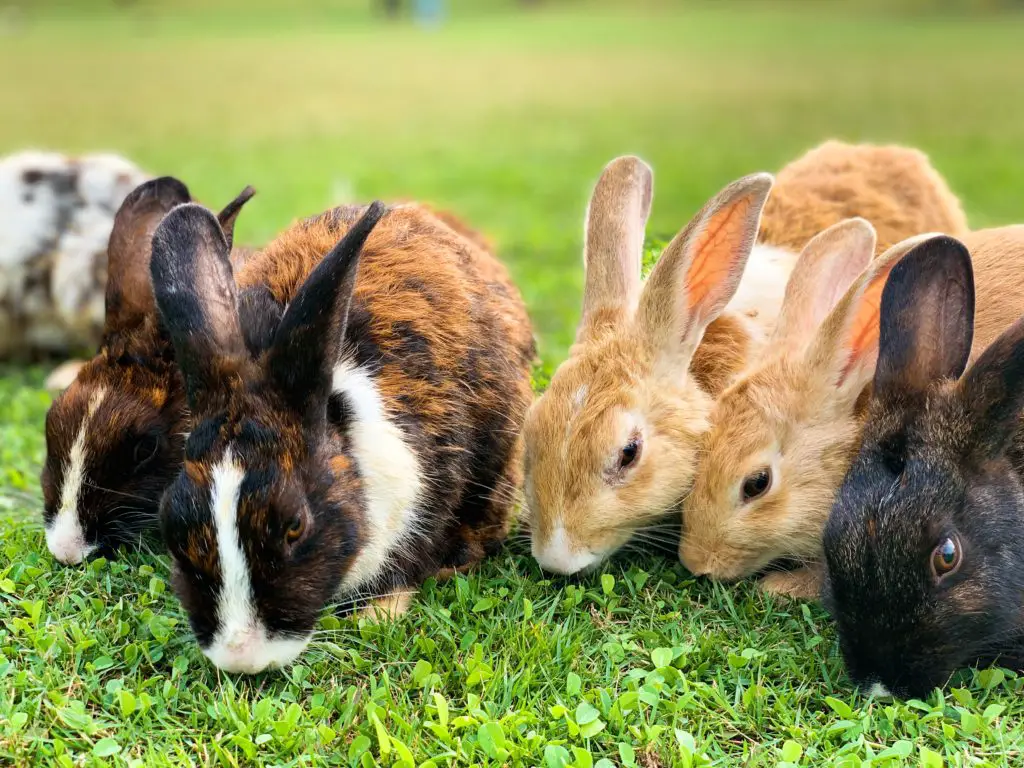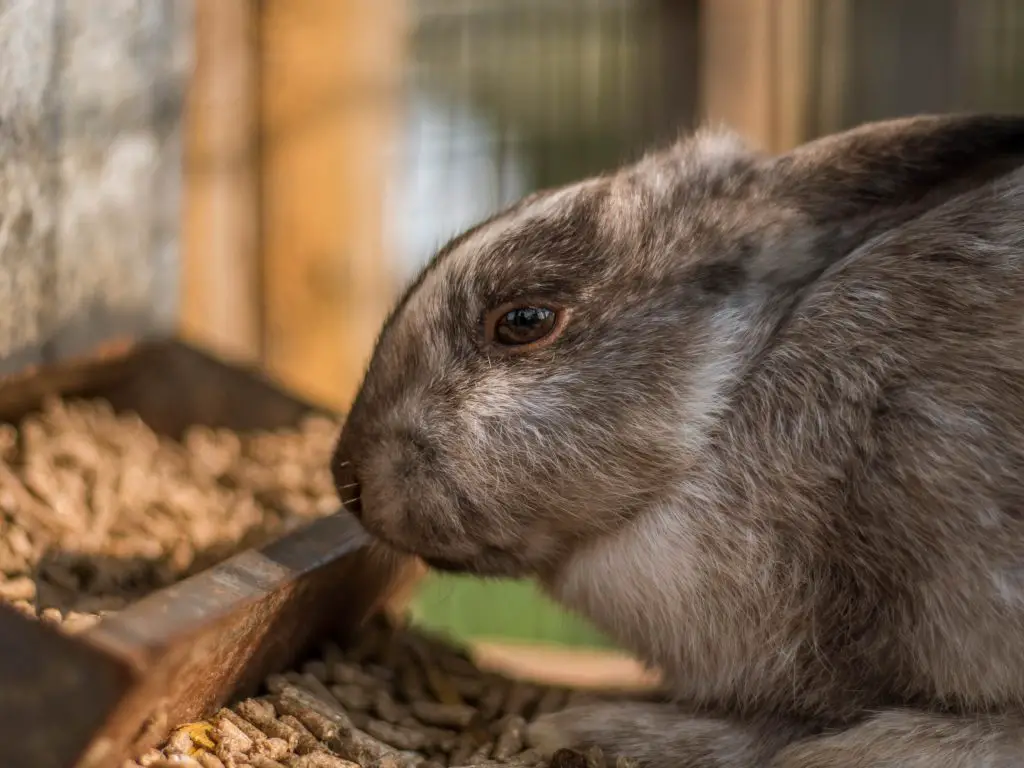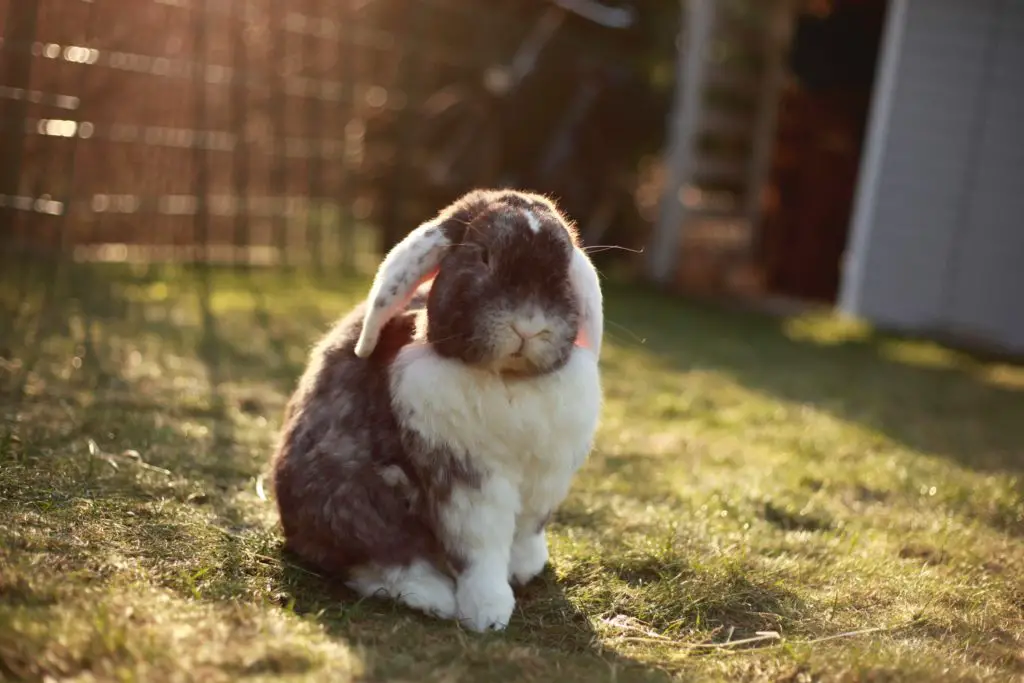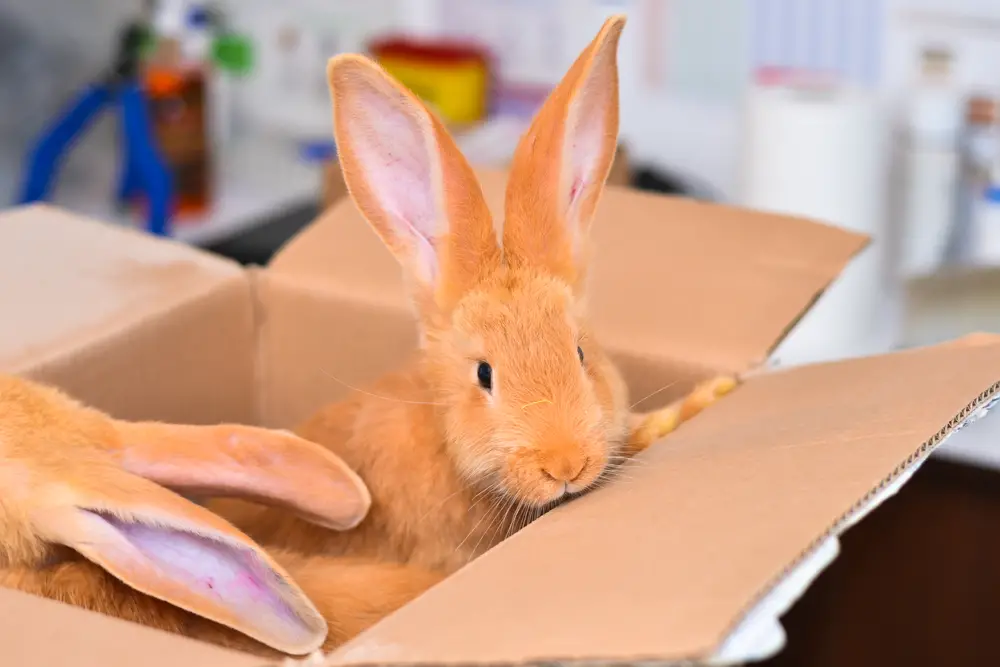There comes the time in every rabbit owner’s life when they need to decide which bedding to choose for the cage of their pet rabbit.
Heat-treated or kiln-dried pine pellets are completely safe for pet rabbits and show rabbits, as long as they are certified 100% organic and natural, and contain no hidden additives or irritants which could damage your rabbit’s health. Research indicates that pine shavings, however, are best avoided as they contain phenols that can cause your pet liver complications.
Pine pellets are safe for rabbits and considered to be a suitable organic bedding option. This article will guide you through the benefits and pitfalls of using pine pellets and also outline the various other options to choose from in order to help you identify the best solution for you and your pet.
Is Pine Pellet Bedding Okay For Rabbits?
Yes, pine pellets are fine because they are kiln-dried, which ensures that the phenols which are harmful to rabbits are removed during the drying process.
These types of pellets are widely available in farm stores or even Amazon and are a popular option with many rabbit owners using them as bedding.
Benefits Of Pine Pellet Bedding For Rabbits
Now that we know that pine pellet bedding is perfectly safe for your rabbit, let’s go ahead and discuss some most important benefits of this product.
Good price
The main advantage of using pine pellets is that they’re economical and super absorbent; they come in large 40-pound bags branded as horse bedding, so rest assured that if they can absorb a horse’s mess, they’ll more than do the job for your rabbit!
No mess
Pine pellets are also clean and dust-free, only becoming powdery when they begin to break down.
Drawbacks Of Pine Pellet Bedding For Rabbits
Now it is time for some drawbacks so you can make a decision on whether to choose this bedding type or opt for something else.
Check the ingredients carefully
Pine pellets can become dangerous when there are hidden additives involved, so be sure to do your homework before you buy. If you’re being economical and want to purchase the bigger bags of pellets used for horses, do check the ingredient list first, as some brands add chemical stabilizers or glue to the pellets.
Since there are several variations available on the open market, always stick to natural and organic, and avoid any nasties that could harm your bunny’s health.
Some vets advise rabbits owners not to use pine pellets because when they absorb, they can become powder-like and dusty. They also claim that the pine smell when you open the bag could be harmful to your rabbit, but most agree that it’s just the phenol in the shavings which causes health complications.
Can You Use Horse Pellets For Rabbit Litter?
When you buy a bag of horse pellets, the label will often say that they are safe for rabbits as well.
The advantage of purchasing a bag of horse bedding is that it will last much longer, so you get both the convenience of the larger size plus a cheaper price tag.
Just bear in mind that it might say on a horse pellet bag that you need to wet the pellets first; this is only done to make the bedding soft for the horses to stand on, but in a rabbit litterbox, that’s not necessary.
Are Equine Pine Pellets Safe For Rabbits?
Yes, not only are they more cost-effective, most rabbit owners seem to agree that horse pellets have better absorbency and therefore improved odor control. Again, just be sure to check the ingredients on the bag first, and don’t pre-water the pellets as you would do for horses.
What Are The Best Pine Pellet Bedding Alternatives?
While pine pellets are still a popular bedding choice amongst rabbit owners, they can be viewed as controversial. Below, I’ve broken down 7 suitable alternatives to help you decide:
- Paper bedding – paper bedding, generally made from wood pulp or shredded paper, is a great and simple option for your bunny’s bed, with many rabbit owners considering it to be a safer alternative to pine, as it’s dust-free, non-toxic, lightweight, and organic.
- Straw bedding – straw is good for insulation and usually a more suitable option for rabbits who live outside and need extra heat. The downside for interior use is that straw is not particularly absorbent, but it’s natural, non-toxic, and provides your rabbit with a healthy organic snack to nibble on.
- Aspen bedding – made from Aspen wood and super absorbent, this type of bedding is popular amongst rabbit owners due to its good absorbency, meaning it is highly effective at eliminating nasty odors. It is also one of the cheaper options, readily available from most pet stores, and safe for your bunny to chew on.
- Hay bedding – high in protein and digestible fiber, hay is great for bunnies to chew on, and the munching also gives them something to do, just as they would chew on grass if outdoors. If using it for bedding, be sure to get good quality hay, and change it daily because it can very quickly grow moldy.
- Fleece bedding – if comfort is your main priority, this super-soft material is your best option to ensure that your bunny keeps warm and cozy. The downside is that the upkeep is quite high-maintenance and therefore not a suitable option for the busier pet owner. Also, fleece is not as absorbent as some of the other options; it will not soak up urine so an additional litter try will be required, and this material will need to be replaced more frequently.
- Washable bed –if you want to go all out for your bunny, invest in a washable bunny bed with waterproof bottom padding which can be clipped to your rabbit’s cage.
- DIY rabbit bedding – if your budget is on the lower end of the scale why not make the bedding yourself? Shredded paper for rabbit bedding is a quick, easy, convenient, solution with almost zero cost: a no-frills way of ensuring your bunny has a comfortable, safe space to rest and sleep. Simply shred some newspaper or cardboard and use it to line the floor of your bunny’s hutch or cage.
Conclusion
If you’re still not sure of the best bedding option for you and your pet, consider joining an online pet forum to discuss your queries and concerns with other rabbit owners.

My name is Katie, and I have had different pets at home for as long as I can remember. While I can definitely say I love all animals in general, my heart belongs to cats and dogs. I know you are supposed to choose one or the other, but I could never really decide. I’ve also owned hamsters and fish when I was a kid, and they filled my childhood with very delightful memories.





